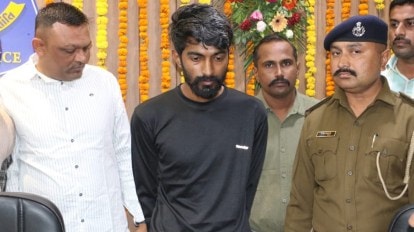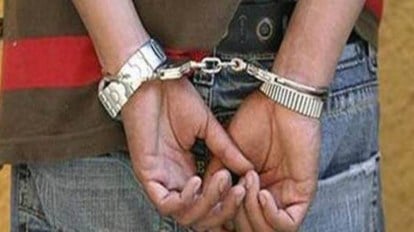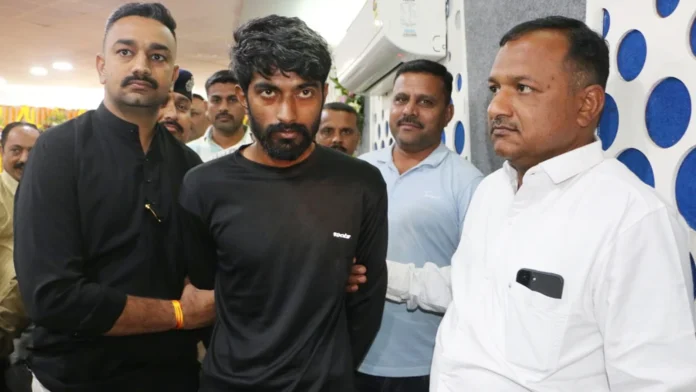A crucial tip-off to Ahmedabad’s Sarkhej Police on December 1 uncovered a chilling saga of murders and saved the life of a businessman. The information led to the arrest of Navalsinh Kanu Chavda, a 42-year-old occultist, who allegedly confessed to murdering 12 people using sodium nitrate. The series of events took a darker turn when Chavda died mysteriously in police custody on December 8, just five days after his arrest.
The whistle-blower, Jigar Bhanu Gohil, aged 24, played a pivotal role in exposing Chavda’s crimes. Driven by a personal tragedy—the murder of his brother allegedly at Chavda’s hands—Gohil went undercover as Chavda’s driver to uncover the truth behind his brother’s death. However, this story took another unexpected twist when Gohil was arrested on December 18 by the Paddhari police for allegedly being an accomplice in four of the 12 murders Chavda committed.
The Tip-Off That Saved A Life
The chilling case began with Gohil’s tip-off to the Sarkhej Police, which revealed Chavda’s plan to murder a businessman. This information not only thwarted the planned killing but also unveiled the sinister operations of Chavda, who used his occult practices as a cover for his gruesome murders.
Chavda, reportedly a known occultist, targeted individuals with promises of spiritual healing and divine interventions. Police sources indicate that he used sodium nitrate, a compound often associated with preserving meats, to poison his victims. His confession linked him to 12 murders, sending shockwaves across Gujarat.

The Whistle-Blower’s Journey
Jigar Gohil’s decision to go undercover as Chavda’s driver stemmed from a personal quest for justice. His brother’s mysterious death haunted him, and he suspected Chavda’s involvement. Taking matters into his own hands, Gohil worked closely with Chavda, gathering vital evidence about his brother’s death and other potential crimes.
However, the tables turned for Gohil when he was arrested on December 18. The police alleged that he played a role as an accomplice in at least four of Chavda’s murders. This development raised questions about Gohil’s motives and the extent of his involvement in the crimes.
The Death Of A Serial Killer
The case took a shocking turn on December 8, when Navalsinh Chavda died mysteriously in police custody. The circumstances surrounding his death remain unclear, with police launching a separate investigation. While officials have not disclosed the cause of death, the incident has sparked debates about custodial safety and procedural lapses in handling high-profile cases.
Chavda’s death has added a layer of complexity to an already convoluted case. With the prime suspect deceased, the focus has shifted to uncovering his networks and understanding the full scope of his crimes.
The Use Of Sodium Nitrate In Murders
Chavda’s choice of weapon—sodium nitrate—has garnered significant attention. Commonly used as a food preservative, the compound can be lethal when ingested in large quantities. Experts suggest that Chavda’s use of sodium nitrate reflects a calculated approach to commit murders that could initially be mistaken for natural deaths.
Investigators are now probing how Chavda acquired the compound and whether he had assistance in executing his plans. The involvement of others, including Gohil, is being thoroughly examined.

The Arrest Of Jigar Gohil
Gohil’s arrest has introduced a twist in the narrative, with police alleging his complicity in multiple murders. As someone who initially appeared to be seeking justice for his brother, Gohil’s alleged involvement raises critical questions.
Was Gohil coerced into assisting Chavda? Did his quest for answers lead him down a dangerous path where he became entangled in Chavda’s crimes? These are the questions investigators are now trying to answer.
Public Reaction And Legal Proceedings
The revelations about Chavda’s crimes and the subsequent arrest of Gohil have sent shockwaves across Gujarat. Residents and local leaders have called for a thorough investigation to ensure justice for the victims and their families.
The mysterious death of Chavda has also drawn criticism from human rights advocates, who have demanded accountability and transparency in custodial procedures. The case underscores the challenges law enforcement faces in handling complex criminal investigations involving serial killers.

A Dark Chapter In Gujarat’s Crime History
The case of Navalsinh Chavda is a grim reminder of the dark underbelly of crime in Gujarat. From the occultist’s calculated murders to the whistle-blower-turned-accomplice narrative, the story highlights the multifaceted nature of criminal investigations.
As police continue their probe, the focus remains on uncovering the full extent of Chavda’s crimes, ensuring justice for the victims, and addressing the unanswered questions surrounding his death in custody. The case has not only exposed a serial killer but also raised significant concerns about custodial safety, judicial processes, and the motivations of those who seek justice.
The arrest of Gohil further complicates the narrative, blurring the line between hero and accomplice. While his tip-off saved a life and revealed a murderer, his alleged involvement in the crimes raises questions that only a detailed investigation can answer. The chilling saga of Chavda and Gohil serves as a stark reminder of the lengths people will go to seek justice—or escape it.

